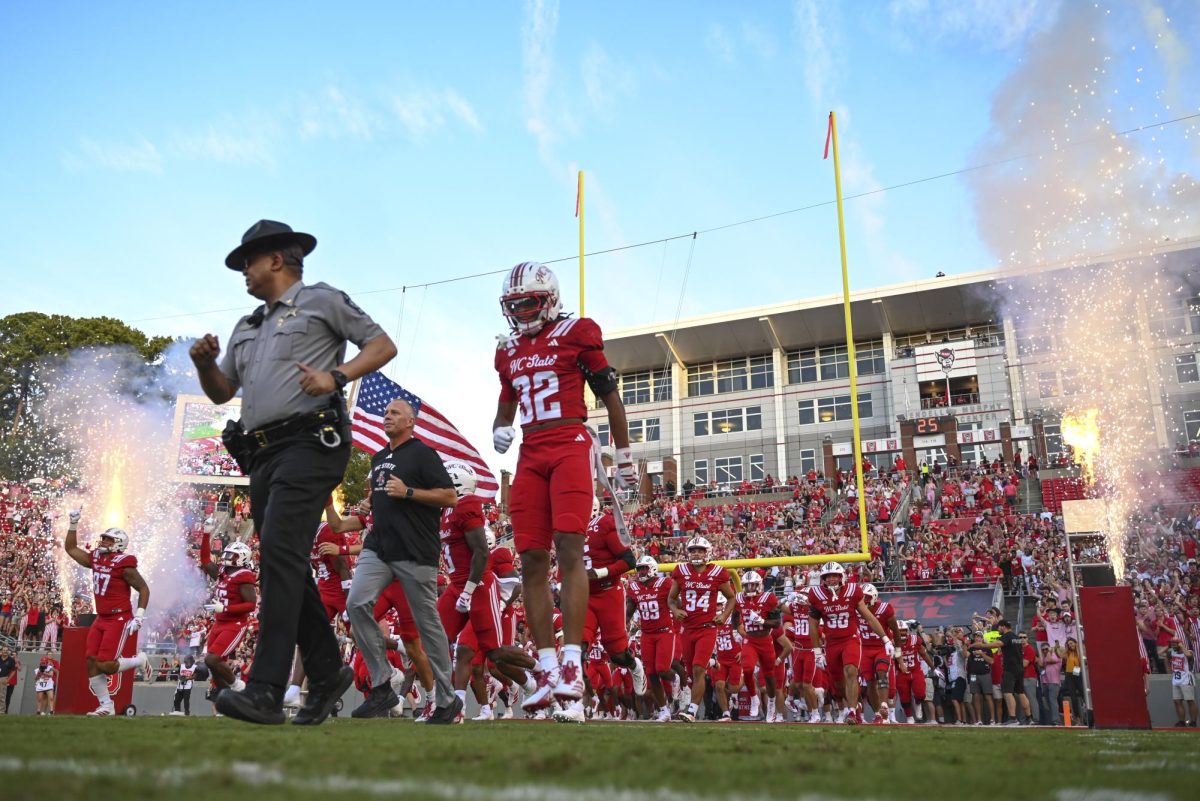The College of Natural Resources hosted Mary Freeman from the University of Georgia on Monday, who spoke about the lack of awareness of ecological problems.
Freeman, a research ecologist for the United States Geological Survey Patuxent Wildlife Research Center, lectured audiences mainly about river basin ecology in the Southeast. She said human settlements have taken a toll on fish populations there. By comparing descriptions from the first ichthyologists in North America to today’s known species, Freeman said scientist have identified 39 species and 18 subspecies that are now extinct.
“Most of these have happened in my lifetime,” Freeman said.
The lecture, “Informing Conservation of a Biological Treasure Close to Home,” covered problems associated with biological diversity and the ecological importance of fish in the southeastern United States.
Freeman said that as of 2010, there are about 1,200 species of freshwater fish identified in North America. About one-half of those live in the Southeast.
“Really, though, we’re not aware of this fauna,” Freeman said.
Freeman said humans impact the river ecology in three ways: dams, changing land use and water supply.
Freeman said that dams along the Alabama, Coosa and Tallapoosa Rivers have harmed many aquatic species in the region, such as the American eel, which has disappeared from the Upper Coosa River.
Freeman’s lecture also covered her and her colleagues’ involvement in housing development in the Etowah River Basin in Georgia during the past few years. They found that many species of fish were sensitive to the creation of impervious land cover, which includes structures made from impenetrable materials such as concrete or asphalt. Freeman said they developed a habitat conservation plan to diminish the impact of development on river ecology.
Freeman said that determining the effect of human water usage is difficult due to an imprecise knowledge of river flow in specific areas. However, old rainfall data was applied to new simulation software in order to model the current state of the rivers, as well as predict the effects of water withdrawal and storage.
This simulation software was applied to study the effects of water usage on the ACF River Basin, which spans regions in Georgia, Alabama and Florida. Freeman compared the basin to a “political hot potato.”
Freeman said that more recently, she and her group at USGS applied the simulation software to study the effects of climate change on fish populations.
Freeman ended by highlighting the lack of awareness of ecological diversity in southeast United States river basins and the importance of outreach.
“You can’t appreciate things you don’t know about,” Freeman said.
Freeman also emphasized the uncertainty inherent in pure modeling, saying that accurate predictions can only be made with up-to-date field data.
“We’ve got to invest in monitoring,” Freeman said. “We’ve got to invest in field work.”
Monday’s event celebrated the 2013 Frederick and Joan Barkalow Distinguished Conservationist Lecture. This annual lecture was created in honor of Fred Barkalow, founder of N.C. State’s wildlife program and former zoology department head. The purpose of the lecture is to bring leading scientists and conservationists to inform N.C. State students about the science and policies of conservation.




